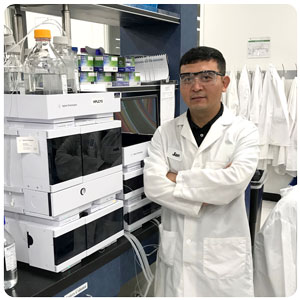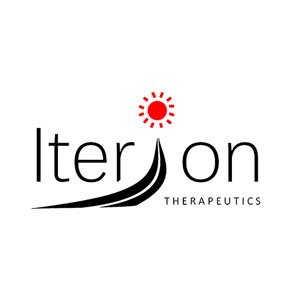
As of the end of Fiscal Year 2022, CPRIT had awarded more than $2 billion in academic research grants to almost three dozen research institutions and organizations across Texas. As a result of CPRIT’s investment in active cancer research, Texas institutions have raised over $2.5 billion in additional funding.
One particularly visible way CPRIT Academic Research grants add to the research prowess of these institutions is through the CPRIT Scholars recruitment program. This program has brought 285 of the best and brightest researchers to Texas since 2009. By working with partner Texas institutions to recruit preeminent investigators through the CPRIT Scholars program, we have significantly broadened the longitudinal reach of our investment in the fight against cancer in Texas.
An early example of the CPRIT Scholar program’s success and exponential value to Texas institutions is the recruitment of James Allison, Ph.D., to The University of Texas MD Anderson Cancer Center in 2012. MD Anderson leveraged a $10 million CPRIT Scholar grant (R1203) to bring Dr. Allison back to Texas from Memorial Sloan-Kettering Cancer Center. Seven years later, the Nobel Foundation awarded Dr. Allison the 2018 Nobel Prize in Physiology or Medicine for his foundational discoveries in T cell biology and his invention of ipilimumab, the first drug to extend the lives of people with advanced melanoma. Recognized as the “father of immunotherapy,” Dr. Allison conducted research which led to groundbreaking discoveries that treat the body’s immune system rather than the tumor to eliminate cancer. In 2022, MD Anderson launched the James P. Allison Institute to rapidly advance breakthroughs into novel and synergetic therapies that bring the benefits of immunotherapy to all patients.
The director of operations for the Allison Institute, Raghu Kalluri, M.D., Ph.D., is also a CPRIT Scholar. MD Anderson recruited Dr. Kalluri to Texas from Harvard Medical School in August 2012 with the help of a $3.5 million CPRIT Scholar grant (R1227). In the Kalluri laboratory, he works to unravel the fundamental principles governing cancer initiation, progression, and metastasis, and has developed a method to stop the action of the KRAS gene that is mutatesd in many cancers. Dr. Kalluri cultivates the next generation of scientists working at MD Anderson, demonstrating that CPRIT’s investment in research prowess will pay dividends for decades.
The University of Texas Southwestern Medical Center recruited Sean Morrison, Ph.D., to Dallas from the University of Michigan with a $10 million CPRIT Scholar grant (R1109) in July 2011. Dr. Morrison studies mechanisms that regulate stem cell self-renewal and the role they play in cancer (particularly leukemia and melanoma). He discovered a series of key regulators that distinguish stem cell self-renewal from the proliferation of restricted progenitors in the same tissues. A better understanding of these mechanisms offers the potential for new regenerative medicine and cancer therapies.

CPRIT also helped recruit Caroline Ajo-Franklin, Ph.D., from the Lawrence Berkeley National Laboratory to Rice University with a $6 million CPRIT Scholar award (RR190063) in November 2019. Recognized as an international leader in the fields of synthetic biology and electro microbiology, Dr. Ajo-Franklin has had groundbreaking success in programming cells to communicate electrically with devices. By building on these innovations, she plans to create a new generation of affordable bioelectronic biosensors for cancer, devices that merge conductive materials and biological electronics for dynamic sensing within the gastrointestinal system (e.g. digital pills).
Like CPRIT’s funding of core research facilities and training programs for the next generation of researchers, the CPRIT Scholar recruitment program is a vital tool to ensure CPRIT investments have a positive impact well into the future.

In the fight against cancer, the first step is prevention. Approximately half of all cancers are preventable through early detection and intervention. By supporting evidence-based interventions, new technologies and life-saving prevention services, CPRIT is working to stop cancer before it begins.
This year, the CPRIT prevention program reached a new milestone, surpassing 8 million prevention services provided to Texans in all 254 counties. CPRIT has awarded 274 grants totaling $327 million to institutions and community-based prevention programs across the state.
CPRIT prioritizes prevention projects for populations disproportionately affected by cancer or those with obstacles to cancer screening, detection, treatment, or care. For example, one community-based prevention program active in FY2022 addresses the increasing mortality rates due to liver cancer in south Texas. Because hepatitis is a contributing factor in a significant majority of liver cancer cases, prevention, and treatment of Hepatitis B virus (HBV) and Hepatitis C virus (HCV) infection is one of the most effective ways to reduce liver cancer.

The GRASSROOTS HEALTH program is a partnership between The University of Texas Health Science Center at Houston, Healthcare for the Homeless Houston and New Hope Housing. The program brings homeless individuals through the full continuum of HBV/HCV care including education, testing, vaccination, and treatment. Originally started in Harris County in 2018 with the support of a $1.2 million CPRIT prevention grant (PP180086), the GRASSROOTS HEALTH program expanded its reach to four additional Texas counties in 2022 with the support of a $2 million CPRIT expansion grant (PP220022). The program eliminates barriers to engagement in care by bringing services directly to the door of permanently supported housing residents. Housing sites serving veterans who experience homelessness will be a priority, when possible, given the heightened risk for hepatitis C among veterans.
The CPRIT Prevention program will continue to invest in effective community-based interventions that utilize new technologies and innovative approaches to reach more Texans and work to decrease the burden of cancer.

Since its inception, a crucial part of the CPRIT mission has been to provide early-stage investments in Texas companies developing new cancer-fighting drugs and therapies.
CPRIT awarded a product development grant to its 50th company in 2022. As of January 31, 2023, CPRIT has awarded $580 million in 62 grants to 51 companies.
For CPRIT-funded companies, Product Development Research program grants provides a financial boost between discovery and clinical trials, a part of the drug development process traditionally called “the valley of death” because venture funding and pharmaceutical company investment can often be hard to find. By investing public funding at this critical stage, promising companies can bridge the valley of death and attract the additional hundreds of millions of dollars necessary to bring innovative cancer treatments to patients. Through CPRIT’s consistent support of early-stage oncology companies in Texas, many more breakthrough discoveries have a chance to develop into new cancer fighting drugs and therapies. When they do, the state will share in the revenue through royalty payments and other financial provisions as required by the terms of every CPRIT grant contract.
READ SPOTLIGHT ON CPRIT'S INVESTMENT IN INVECTYS
Although the development cycle for oncology treatments can span more than a decade, some of these product development grants have already led to the development of new drugs and therapies progressing through clinical trials. Belzutifan is the first CPRIT-funded drug approved by the FDA. With the support of a $3.2 million CPRIT Product Development Research award (R1009) in 2010, Peloton Therapeutics developed Belzutifan, a first-in-kind drug for the treatment of cancers associated with a rare genetic condition called Van Hippel-Lindau disease, which the FDA approved in 2021.
 CPRIT awarded a $3 million grant (DP220019) to Iterion Therapeutics to build upon the success of their Phase 1 study which indicated that tegavivint, a potent and selective first-in-class small molecule inhibitor of Transducin beta-like Protein One (TBL1),was well tolerated and showed signs of efficacy in desmoid tumors.Iterion will use these funds to develop a second-generation TBL1 inhibitor that leverages their current chemistry and understanding of TBL1 as a target to achieve novel, structurally distinct drug candidates with improved pharmaceutical properties, including oral absorption.
CPRIT awarded a $3 million grant (DP220019) to Iterion Therapeutics to build upon the success of their Phase 1 study which indicated that tegavivint, a potent and selective first-in-class small molecule inhibitor of Transducin beta-like Protein One (TBL1),was well tolerated and showed signs of efficacy in desmoid tumors.Iterion will use these funds to develop a second-generation TBL1 inhibitor that leverages their current chemistry and understanding of TBL1 as a target to achieve novel, structurally distinct drug candidates with improved pharmaceutical properties, including oral absorption.
Through the Product Development Research program, CPRIT will continue to invest in companies offering promising research discoveries and innovative translational work to make new cancer drugs, diagnostics, and therapies available to all Texans.